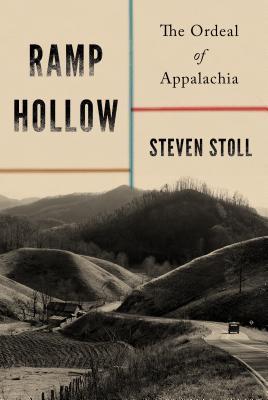Short-listed for the Phi Beta Kappa Ralph Waldo Emerson Book Award
In Ramp Hollow, Steven Stoll offers a fresh, provocative account of Appalachia, and why it matters. He begins with the earliest European settlers, whose desire for vast forests to hunt in was frustrated by absentee owners--including George Washington and other founders--who laid claim to the region. Even as Daniel Boone became famous as a backwoods hunter and guide, the economy he represented was already in peril. Within just a few decades, Appalachian hunters and farmers went from pioneers to pariahs, from heroes to hillbillies, in the national imagination, and the area was locked into an enduring association with poverty and backwardness. Stoll traces these developments with empathy and precision, examining crucial episodes such as the Whiskey Rebellion, the founding of West Virginia, and the arrival of timber and coal companies that set off a devastating "scramble for Appalachia."

Short-listed for the Phi Beta Kappa Ralph Waldo Emerson Book Award
In Ramp Hollow, Steven Stoll offers a fresh, provocative account of Appalachia, and why it matters. He begins with the earliest European settlers, whose desire for vast forests to hunt in was frustrated by absentee owners--including George Washington and other founders--who laid claim to the region. Even as Daniel Boone became famous as a backwoods hunter and guide, the economy he represented was already in peril. Within just a few decades, Appalachian hunters and farmers went from pioneers to pariahs, from heroes to hillbillies, in the national imagination, and the area was locked into an enduring association with poverty and backwardness. Stoll traces these developments with empathy and precision, examining crucial episodes such as the Whiskey Rebellion, the founding of West Virginia, and the arrival of timber and coal companies that set off a devastating "scramble for Appalachia."